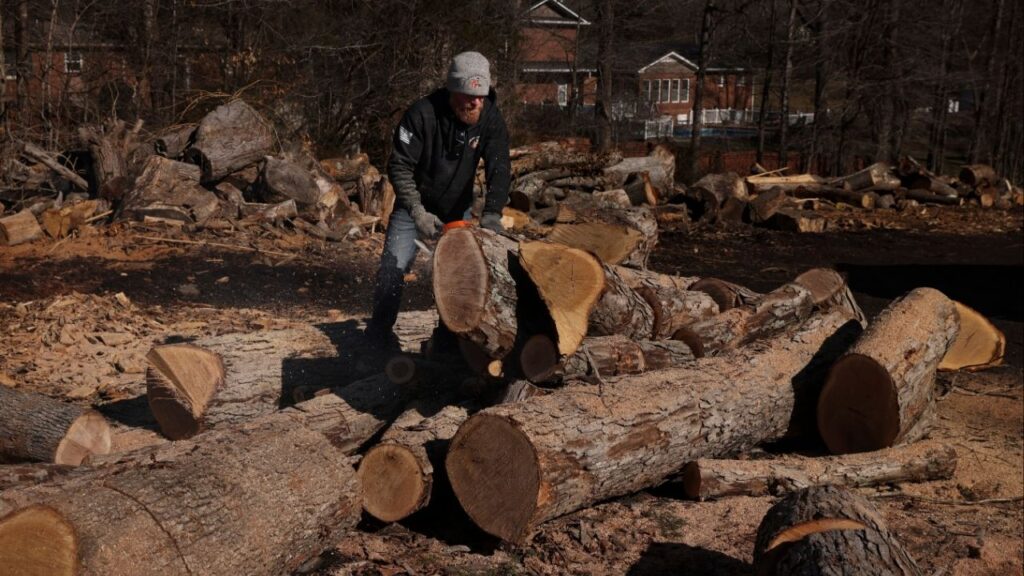Share
DETROIT — For the first time, the U.S. government’s highway safety agency has approved a company’s request to deploy a self-driving vehicle that doesn’t meet federal safety standards that apply to cars and trucks driven by humans.
The National Highway Traffic Safety Administration granted temporary approval for Silicon Valley robotics company Nuro to run low-speed autonomous delivery vehicles that were designed so they can’t carry humans.
Nuro’s vehicles won’t be required to have side and rear-view mirrors and other safety provisions. Also not on the safety feature list; windshield wipers, steering wheels or brake pedals.
The vehicles previously were subject to federal standards for low-speed vehicles that travel under 25 miles per hour. Those didn’t need steering wheels or brake pedals and didn’t have to have human backup drivers. Nuro’s battery-powered vehicles can be monitored and controlled remotely by a human operator, if needed.
The approval is the first sign that NHTSA is moving from abstract statements and voluntary standards governing autonomous vehicles to actual regulation, said Bryant Walker Smith, a University of South Carolina law professor who studies vehicle automation. It’s a signal that the agency, which has stated publicly that it doesn’t want to stand in the way of the new technology, is likely to approve more vehicles, he said.

Nuro Will Have to Make Real-Time Safety Reports to the Agency
Under the temporary approval, Nuro will have to make real-time safety reports to the agency. Nuro also will have to hold regular meetings with the agency and reach out to the community in areas where the vehicles will travel.
“NHTSA is dedicated to facilitating the safe testing and deployment of advanced vehicle technologies, including innovative vehicle designs, which hold great promise for future safety improvements. As always, we will not hesitate to use defect authority to protect public safety as necessary,” said NHTSA Acting Administrator James Owens.
The agency will use enforcement powers if it finds any evidence of an unreasonable risk to safety, the statement said.
In December Nuro announced plans to use its low-speed delivery vehicles in partnership with Walmart to deliver groceries to customers in Houston. The service was to start early this year and use the vehicles as well as automated Toyota Prius hybrid cars. Nuro also was testing deliveries with Kroger in Arizona and Houston.
Delivery Vehicles Will Travel With Regular Traffic on Public Roads
Nuro, of Mountain View, California, announced new version of its autonmated delivery vehicle called the “R2” on Thursday. It’s the second generation of a vehicle that’s custom built to deliver goods, but not people.
The company said it plans to deploy fewer than 100 vehicles this year, but has permission from NHTSA to eventually run as many as 2,500.
The delivery vehicles, equipped with laser, camera and radar sensors, will travel with regular traffic on public roads.
The exemption from motor vehicle standards from NHTSA also allows Nuro to run its rear cameras all the time. Current standards require the camera displays to turn off when the vehicle is moving forward so they don’t distract human drivers, the company said.
Nuro said in a statement that the R2 has a front-end that protects pedestrians by collapsing inward. It’s also equipped with temperature controls to keep perishable goods or meals fresh.
The vehicles make curbside deliveries to humans who can open the storage compartments with a code that’s sent to them and unload the goods.

‘Exemption Can Mean More Safety’
Nuro said NHTSA’s approval came after three years of work with the agency.
Company co-founder and President Dave Ferguson said NHTSA’s decision “shows that exemption can mean more safety.”
Still unresolved is an application from General Motors to allow a self-driving Chevrolet Bolt that doesn’t meet safety standards for human-driven vehicles that travel at higher speeds. GM wants the Bolt to be allowed without a steering wheel or brake pedals.
Tech companies and automakers have been able to test autonomous vehicles without NHTSA approval in the past because they have had steering wheels, brake pedals and other features required of human-piloted cars and trucks.



















